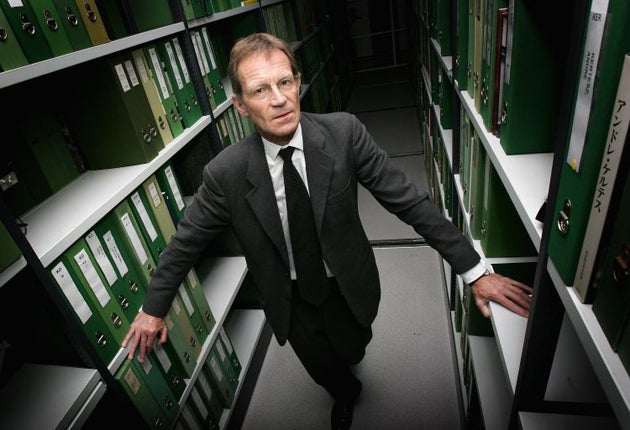Has politics lost the art of culture?
Only five MPs have the passion to be Culture Secretary, says Tate director

Many a modern politician has been seen breezing into the Royal Opera House or Tate Modern for the latest premiere of whichever cultural event is making waves. Yet this conspicuous presence does not necessarily suggest any serious allegiance to the arts, according to the director of one of Britain's biggest galleries.
The Tate's Sir Nicholas Serota has spoken out against what he believes to be a lack of passion for the arts in Westminster, saying he could not think of even a handful of politicians who could perform the job of Culture Secretary effectively. But he added that the latest Secretary of State for Culture, Media and Sport, Ben Bradshaw, was an exception.
"It is difficult to think immediately of five leading politicians who would be natural secretaries of state for Culture, Media and Sport in contrast to Health, for example, where there are always lots of candidates," he said. "Ben Bradshaw is a good appointment, but in my view there are not a lot of people around who take [the job] seriously."
Sir Nicholas made his displeasure known at a lecture at the London School of Economics on government funding and the future of galleries and museums. He spoke alongside Neil MacGregor, the director of the British Museum, who disagreed with Sir Nicholas's assessment of political indifference to the arts.
"I think Parliament is seething with closet aesthetes... there is now a minister in the Cabinet who is responsible [for the arts], which was not the case when I was appointed," Mr MacGregor said. "Now the arts are an issue politically in a way they weren't 20 years ago."
When Sir Nicholas took over the Tate it was in a perilous state. The then prime minister, Margaret Thatcher, had declared that the arts would be subject to market forces. Although the Tate received a government grant, it was not enough to provide for major purchases, especially in the late 1980s when the art market was inflated.
Sir Nicholas said yesterday that the landscape had only "marginally" changed since the Tory government of two decades ago, in spite of greater funding secured by former Culture secretaries such as James Purnell, and the free museum and galleries admission schemes that were implemented by Chris Smith.
Sir Nicholas predicted that galleries and museums could face a tough five years as a result of the recession, but that while corporate sponsorship might have decreased, the generosity of individual benefactors had continued. He added that new acquisitions would inevitably become harder to secure.
"It'll be a tough five years but with the levels of public appreciation and engagement in this country, I'm sure we'll come through," he said.
Mr MacGregor said that one way for the British Museum to continue making new acquisitions was to buy jointly with others, including institutions abroad.
When asked about the furore which re-erupted last month about the ownership of the Elgin marbles and their possible return to Greece to be housed in the new Acropolis Museum, Mr MacGregor was adamant that he would not see them returned and suggested such artefacts should be regarded as "shared".
"It's a question of whether you believe in shared human culture, one culture that is everyone's inheritance, or whether you want to define that in particularly national terms... This is a totally normal European phenomenon, one European museum to have great objects from another great museum, that's why we have one European identity," he said.
Join our commenting forum
Join thought-provoking conversations, follow other Independent readers and see their replies
Comments